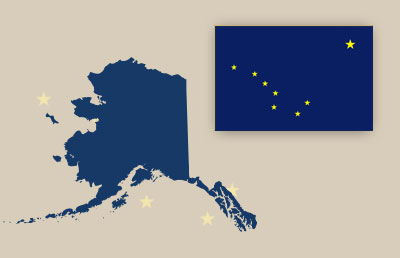Alaska Fiduciary Access to Digital Assets Act

Effective October 31, 2017, Alaska has enacted the Revised Uniform Fiduciary Access to Digital Assets Act as Title 13, Chapter 63 of the Alaska Statutes. The Act addresses four common types of fiduciaries: executors or administrators of estates, guardians or conservators, agents acting under a power of attorney, and trustees of a trust. The Act allows a fiduciary, in accordance with a user’s estate plan, to compel the disclosure of digital assets stored by a custodian. The Act only applies to a custodian if the user resides in the state of Alaska or resided in the state of Alaska at the time of the user’s death. The Act does not apply to the digital assets of an employer used by an employee in the ordinary course of business.
User Direction for Disclosure of Digital Assets
A user may utilize one of two methods to direct the disclosure of digital assets. The user may use an online tool provided by the custodian which allows the user to direct disclosure to a designated recipient. If this tool allows the user to modify or delete direction at any time, then the directions on the online tool overrides any contrary direction in a will, trust, power of attorney or other instrument. In the case where the custodian does not provide such a method to direct disclosure or a user does not utilize the tool, then the user may authorize disclosure in a will, trust, power of attorney or other instrument.
Disclosure of Content of Electronic Communication
If a user has consented to disclosure or a court directs disclosure of digital assets, the custodian has 60 days from its receipt of the required documents from the fiduciary to disclose the digital assets or, if requested, terminate the account. The documents required to be provided to the custodian include a written request for disclosure along with a certified copy of the death certificate, letter of appointment, trust instrument, power of attorney, or court order granting the fiduciary authority over the digital assets of a protected person. The custodian may request the fiduciary provide evidence linking the account to the user as well as a number, username, or other identifier issued by the custodian to the user so that the custodian may identify the user’s account. If, at the expiration of 60 days from the custodian’s receipt of all required documents, the custodian fails to comply with the fiduciary’s request, the Act allows the fiduciary or designated recipient to apply for a court order directing compliance.
Procedure for Disclosing Digital Assets
When a custodian must disclose digital assets, the custodian has the discretion to:
- Grant a fiduciary or designated recipient full access to the user’s account;
- Grant a fiduciary or designated recipient partial access to the user’s account sufficient to perform the tasks with which the fiduciary or designated recipient is charged; or
- Provide a fiduciary or designated recipient a copy of a record of any digital asset that, on the date the custodian received the request for disclosure, the user could have accessed if the user were alive and had full capacity and access to the account.
Custodian Compliance and Immunity
The Act provides immunity from liability to the custodian, its officers, employees and agents for any good faith act or omission done in compliance with the Act. However, the Act does not prevent a custodian from obtaining, or requiring a fiduciary or designated recipient to obtain, a court order that specifies that an account belongs to the user and specifies that there is sufficient consent by the user to the disclosure.
Adam Faria, JD, is a regulatory compliance consultant with CLA. He is a graduate of Northeastern University and earned his juris doctor at Suffolk University Law School. He is admitted to the bar in Massachusetts and New Hampshire.

Comments are closed.